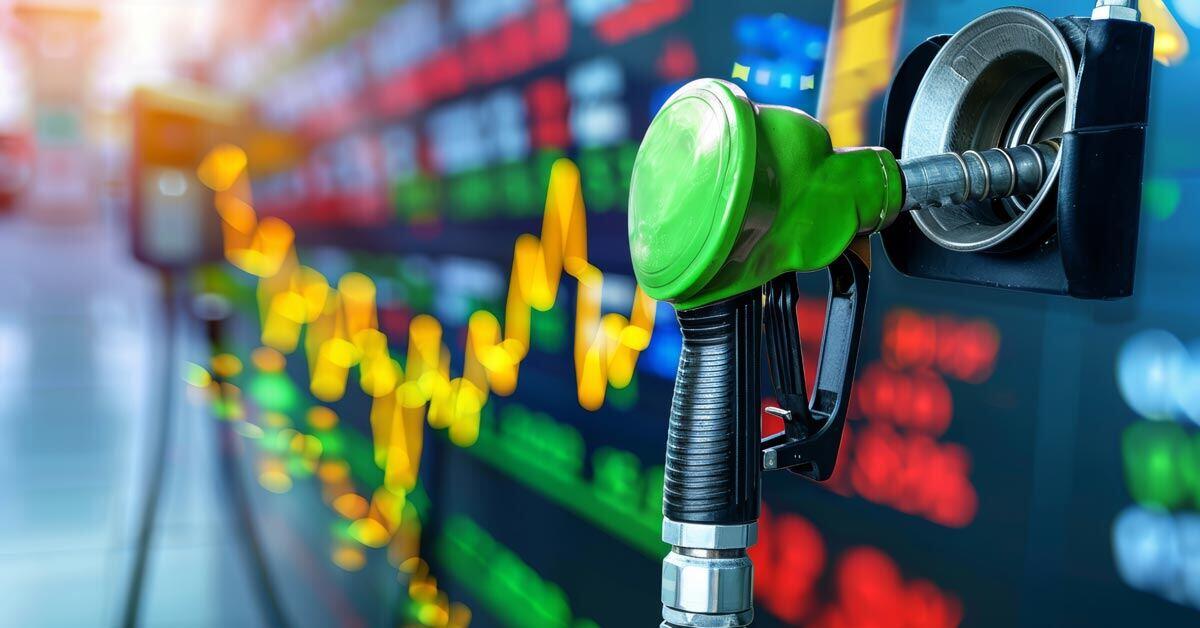4 min read
2024 Margins Down 40% from 2022 as Advanced Biofuel Tickets Stay Low
ResourceWise
:
Sep 13, 2024 12:00:00 AM

The biofuels and feedstocks market has experienced a persistent downward trend, affecting margins and causing immense strain on producers. But shifts from anti-dumping measures on Chinese imports to the EU offer an optimistic outlook for market recovery leading into 2025.
Struggling Margins and Price Declines in European Biofuel Industry
The European biofuel industry is facing a declining margin landscape, particularly for waste-based producers. Simple European UCOME margins peaked in 2022 but have plummeted by about 40% year-to-date in 2024.
The downward trend comes from a combination of strong prior imports and shifts in EU policy support. Market conditions have also created a challenging operating environment through the summer.
Despite these challenges, the 2025 outlook shows a much stronger trend toward recovery. Market dynamics are shifting after factors such as the EU’s anti-dumping duties on Chinese biodiesel imports take effect.
Related: EU Tariffs' Effect on the International Biofuels Market
Higher Resource Costs, Premiums Tighten Margins
Actual margins, accounting for fixed and variable costs, reflect the struggling market in recent months. Increased non-feedstock input costs since the COVID-19 pandemic and the onset of the Russia-Ukraine war have worsened the situation.
Higher costs for natural gas, power, chemicals, and labor compound the issue. Prices for biodiesel and vegetable oils also lowered as Chinese imports filled the market.
Take Germany, for example. German labor costs have surged nearly 20% since 2020. Power prices have also jumped by 30% compared to pre-COVID levels.
Premiums for double-count products have dipped relative to the European baseload RME market. The decrease reflects high elasticity in waste-based imports versus inelastic single-count markets.
Tight margins may also lead to the closure of more European waste-based operations as they struggle to recover.
 (Source: Prima CarbonZero)
(Source: Prima CarbonZero)
European Vegetable Oil-Based Producer Challenges
These challenges extend to European vegetable oil-based producers as well. EBIT margins at EU RME bellwether Verbio have declined following the rise in Chinese biodiesel imports.
Verbio has attributed much of its decrease to alleged market manipulation from China. Consequently, the company is redirecting its investment in renewable fuel plants to the US while seeking independence from the difficult conditions in Germany and Europe.
Verbio recently launched a joint bioethanol and biomethanol plant in Iowa. This could yield high benefits if it can take advantage of the high-demand market for high-pricing D3 RINs.
Advanced Fuels and Low Ticket Prices
Back in Europe, waste-based margins are further threatened by low ticket prices across the European market. The market may take months to stabilize even after imports slow down post anti-dumping duties.
This situation poses several challenges to the EU's decarbonization plans. Investors could delay or cancel potential advanced biofuel projects essential for meeting aggressive synthetic fuel mandates under RED III.
For instance, e-methanol projects in Europe have already been scrapped due to unviable profitability. Danish renewable power firm Orsted abandoned its flagship e-methanol project earlier this month. The company cited strategic decisions to deprioritize the European market due to slower-than-expected development.
Continued Vigilance Against Chinese Imports
As we’ve covered here on the blog, EU producers remain vigilant for potential loopholes that might allow Chinese biodiesel entry into the bloc.
Mass balance Proof of Sustainability (PoS) switches between T1 and T2 products across duty lines are under scrutiny. The industry is closely monitoring trade events for inconsistencies. Import vessels are already being tracked at the association level.
Related: EU Biodiesel on Alert for Margin Shifts, Chinese Import Exploits
Considering the fragile state of 2024 margins, producers are examining the impact of overseas tax reliefs like inward processing relief. This could exempt imported biodiesel from the 6.5% EU import duty.
Although the UK has abolished this practice, it remains active in the EU. And it may further disadvantage domestic producers.
Reports suggest an increase in Chinese biodiesel imports into the UK paired with a rise in exports of blended B7 biodiesel to the EU. However, the trade dynamics are still unclear.
Despite the biodiesel changes, the EU remains open to Chinese SAF exports as they are excluded from provisional anti-dumping measures.
European trade associations have flagged Chinese SAF as a potential avenue for Chinese HVO to enter the EU road transport fuel market. The lack of dedicated HS codes for SAF and the need for specific testing procedures at EU ports may leave space for exploitation.
Outlook for 2025 and Potential Market Recovery
Despite the prevailing challenges, biofuel prospects look more promising for 2025.
The core German market plans to eliminate refinery UER emissions reductions from its mandate mix while increasing organic demand growth. This could lead to physical demand growth of over 25% year-over-year. If the mandates fully impact the diesel blending market, German HVO demand could rise by up to 600,000 tons.
In practice, some legacy UERs will still be available. Double-count advanced HVO will also be incentivized above the German blend wall. This implies an uplift in German HVO demand of up to 300,000 tons. This number is still a fraction of the demand wiped out in Sweden after the government drastically reduced the mandate at the start of this year.
Sweden is considering partially reversing its 2024 mandate cuts to improve market sentiment in Scandinavia. Meanwhile, the EU will introduce its first-ever mandates for SAF and marine blending. Both of which will tap into existing transport biofuel feedstock pools.
Additionally, the EU's centralized traceability database that will launch in November will enhance sustainability reporting requirements. The requirements will add some friction and risk on the supply side and likely reduce overall supply elasticity.
Starting in 2025, any major corporation with an EU presence will be required to report its fuel consumption and path to net zero under the Corporate Sustainability Reporting Directive. This directive is expected to increase discretionary demand for high-blend biofuels. They offer a quick path to emissions reduction for companies eager to improve their public emissions profile.
Get Market Insights on Anti-Dumping Market Effects with On-Demand Webinar
The European biofuel industry faces some challenges due to declining margins, high input costs, and low ticket prices. But the outlook for 2025 offers hope for recovery, driven by increased demand and regulatory changes.
How have the EU’s anti-dumping measures against Chinese biodiesel and HVO imports impacted the landscape? And what can you expect through the rest of the year and into 2025?
Get answers to these questions and more from our on-demand webinar, After China Anti-dumping: The International Biofuels Landscape. Our expert-led webinar covers several crucial topics to help inform your own market strategy:
- Provisional Tariff Structure: What the tariffs look like and the effects they are already yielding.
- Trade Flow Shifts: How will Chinese production shift? What is the role of alternative feedstock usage such as SAF?
- Market Dynamics: Feedstock buying/selling trends, European demand changes, and other global market projections.
- Strategic Insights: How to move forward in a volatile market for biofuels and advanced feedstocks.
The webinar provides an excellent resource for you to better understand the mechanisms driving this complex market.




![[Video] Molecules to Markets Episode 1: Chemical Markets Begin 2026 in a Supply-Driven, Margin-Sensitive Environment](https://www.resourcewise.com/hubfs/images-and-graphics/blog/chemicals/2026/weekly-video-series-molecules-to-markets/CHEM-Weekly-Video-Series-Molecules-to-Markets-Episode-1.png)
